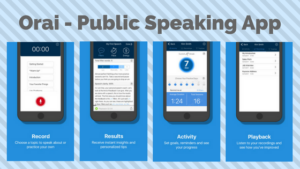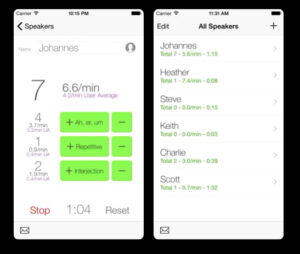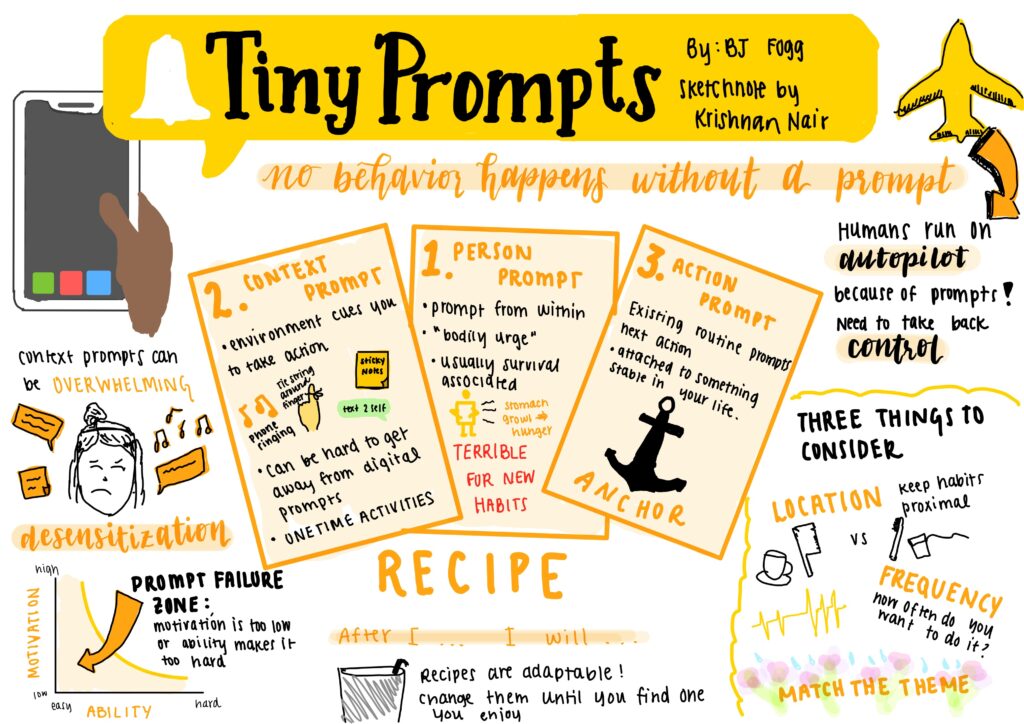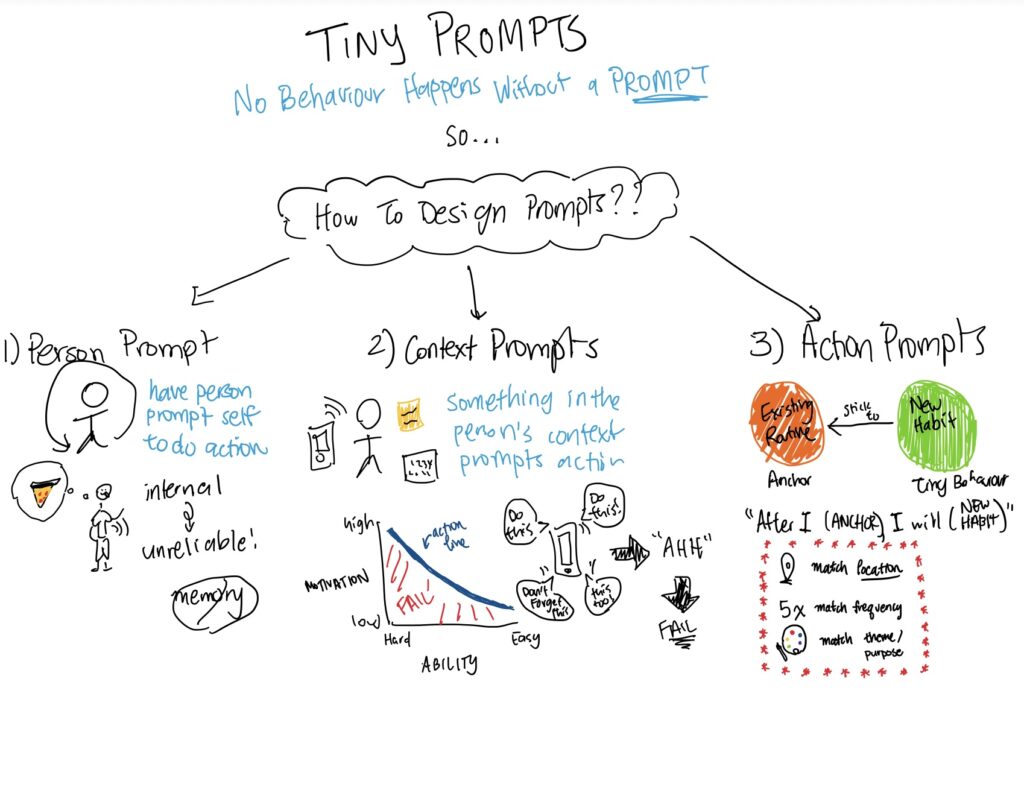Introduction
Have you ever felt like you stutter a lot? Perhaps, say “um” and “eh” a lot? Maybe, you even say phrases that indirectly undermine your credibility like “I think” and “maybe”–just like how I started off this sentence. No one’s perfect–not even us. However, our team does have a mission. Our team aims to help people gain confidence in speaking by removing subconscious speech behaviors that are indirectly making you less credible (e.g. fillers, hedges). However, to understand what has and what has not worked in the past, we decided to do a competitive analysis of apps that with similar goals of improving speech.
Competitive Analysis
1. Speeko (Free Version)

Speeko is an app that allows you to record yourself speaking and utilizes AI to offer insight on your pace, choices of words, and other verbal techniques. Depending on what part of public speaking that one of them is working on, Speeko has divided the application into different parts depending on what the user wants to focus on: Breathe and Project, The Good Pace, Articulation Station, Power of the Pause.
Pros:
- High levels of user-centric personalization (personalized coaching)
- Tracks user’s progress
- Random prompts feature encourages engagement
- Nudges to remind user the time is helpful
Cons:
- Vocal Delivery Basics: It does not tell you what filler words that one uses
- Short Lecture Type Lessons can be made into quick bits of information embedded within the lessons
- The Performance Review Matrix do not have numbers attached towards them, which would be helpful to navigate through
- Cannot skip lessons order (have to go in order)
2. Orai

Using artificial intelligence, the Orai app allows users to do practice presentations and obtain immediate feedback on their performance. With 300,000 users around the globe, Orai brands itself as an app that helps users conquer their fear of public speaking. Upon opening the app, it gives you a baseline assessment: pace, energy, conciseness, and fillers.
Pros:
- Has a pace meter feature
- Creates a custom learning plan for each user4
- Users can set reminders and join teams
Cons:
- Annoyance factor: the app repetitively asks to record
- Initial speech assessment for users are not always accurate
- Most items in the app are pay-for
3. LikeSo

LikeSo is a speech-analysis app that utilizes voice-recognition technology to provide its users with real-time analysis on speech proficiency by tracking how often the user uses filler words. The company aims to help people remove the guilt of using filler words as a habit in their daily lives. It provides several topic options for users to practice on and gives the users flexibility on which words they intend to focus on removing.
Pros:
- Users can choose a topic to practice on (e.g. job interviews)
- Users can select specific words they intend to train against (e.g. actually, ya know)
- The app provides a progress graph to signify speech conditioning
Cons:
- It costs $4.99 without a free version so potential users cannot test out the app before purchasing
- Provides a speech score (letter grade) but there is no evidence or support on how the letter grade is determined
- User interface is quite outdated and not too intuitive
4. Ummo

Branded as a “Personalized Speech Coach”, Ummo is an app that aims to teach users self-awareness in how they choose to communicate. The app listens to the users and tracks how often you use all of your words and categorizes filler words as its own. What differentiates Ummo from the rest, nonetheless, is that it’s envisioned as an app that listens to you 24/7. Ummo is currently exploring physical solutions by prototyping on clip-on mics and necklaces that persistently tracks your speech for the entire day. Because these inventions are still in the works, we will focus mainly on their mobile app.
Pros:
- Simple and straightforward user interface and a well constructed user experience allows users to navigate through the app seamlessly
- Right amount of information presented in app – does not induce information overload
Cons:
- Unavailable on the app store currently
- Does not offer any guidance or training for users who intend to remove filler words from everyday speech (simply only tracks use of words without further action)
- Does not save a user’s speech progress
5. Ah Counter App

The Ah Counter App allows its users to keep count of fillers, repetitive words, and interjections for 1 or more speakers. The app is developed by an independent software developer and allows users to enter multiple speakers into the app. The user is expected to track filler words by simply tapping on the filler word counter. It has a stopwatch integrated within the app. The app essentially calculates how many filler words a user interpolates per minute.
Comparative Map
Ultimately, we created a comparative map using 2 primary metrics to measure the app’s usability and experience: how many usable features does the app offer and to what extent can the user experience be personalized to a specific user (vs having a rigid application structure). From our analysis, we noticed that apps that have more customers in the market (e.g. Speeko, Orai) have higher levels of customization and personalization. In contrast, apps with a more fixed system where users’ experience is not personalized seem to either be unavailable on the App Store (Ummo) or simply has few customers (Ah Counter).




